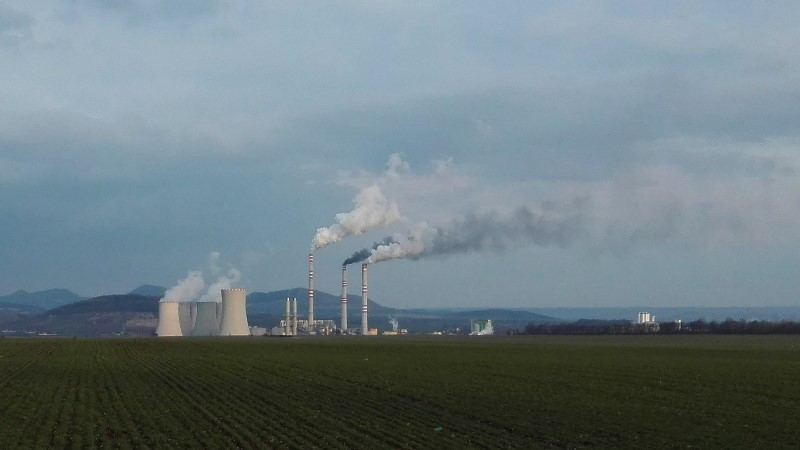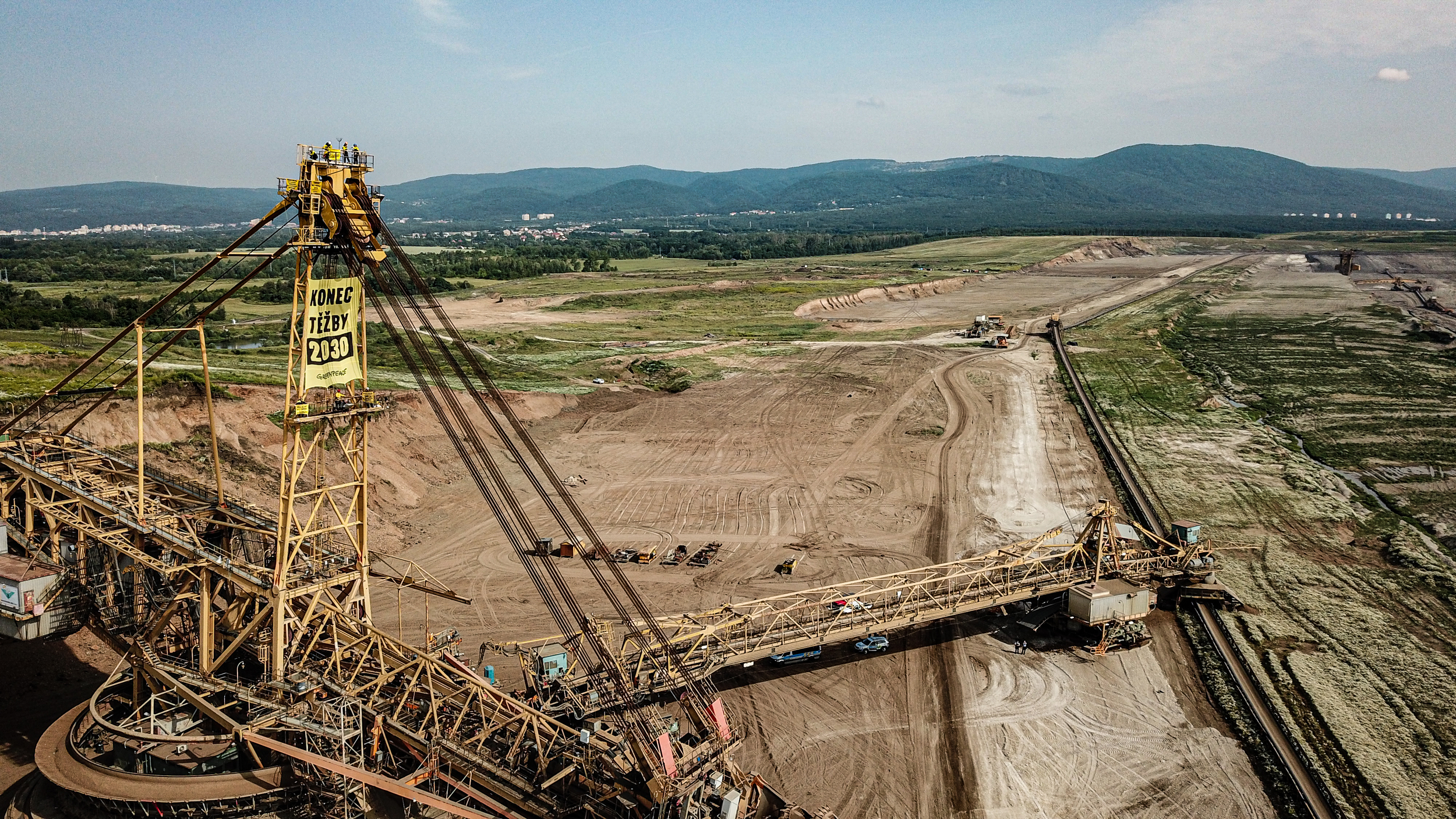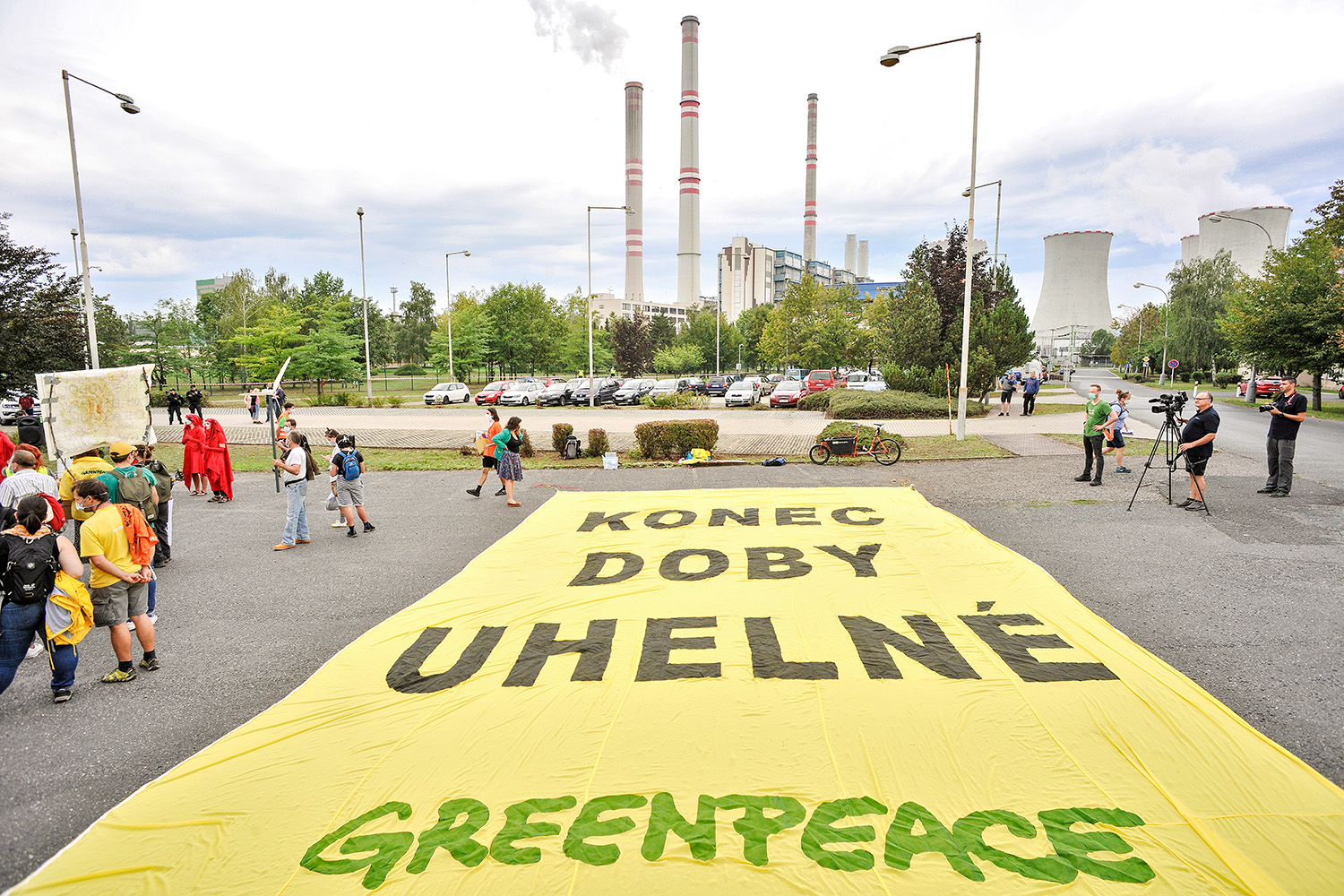Last night, Greenpeace projected messages on the Government Office in Prague and on the cooling tower of the refinery near Litvínov, where oil imported from Russia is processed. The messages that appeared on these structures overnight called on the government of Prime Minister Petr Fiala to support an end to Europe’s imports of Russian oil by the end of this year, rather than demanding an exemption.
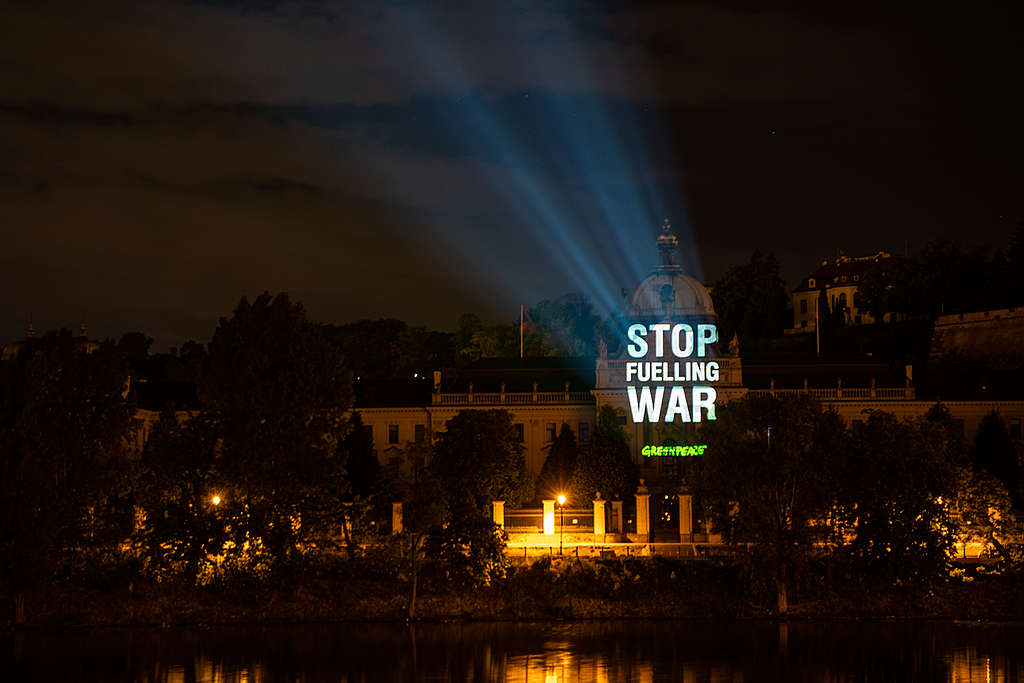
In recent weeks, the European Union has been discussing a new package of sanctions against Russia, which is expected to include a commitment to phase out Russian oil imports by the end of this year. Ministers and prime ministers will meet for an extraordinary EU summit at the end of May. Meanwhile, Hungary is blocking efforts to end Russian oil, which is funding the ongoing war in Ukraine. The Czech Republic and Slovakia are willing to support the end of Russian oil, but only if it does not apply to them for some time. According to media reports, the Czech Republic could get an exemption until mid-2024 and Slovakia until the end of 2024. At the same time, some European states – including Germany – have already announced that they will end Russian oil in the coming months even if the EU-27 fails to agree on a common course of action.
Prime Minister Fiala argues that the Czech Republic needs an exception because „sanctions must not harm the citizens of the Czech Republic more than the Russian Federation“. However, the exemption from the end of Russian oil imports will not give the Czech Republic any advantages over other countries, because oil prices are based on the stock exchange. Czech petrol station prices will be dependent on prices in other European countries that plan to end Russian oil imports by the end of the year.
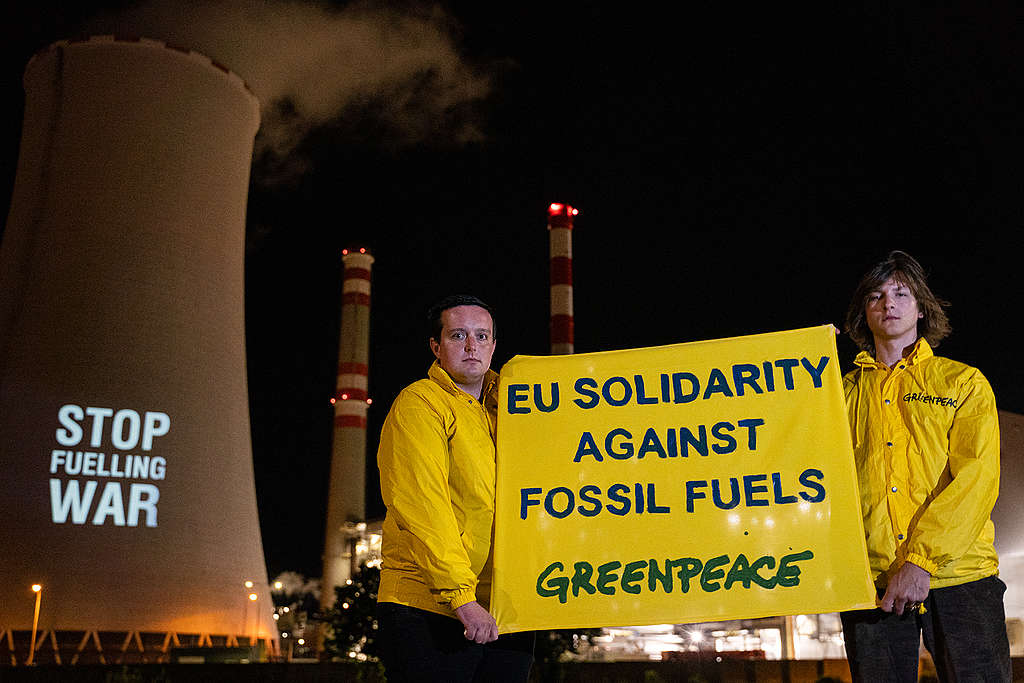
At the moment, the Czech Republic imports 48% of its current oil consumption from Russia, with the other half coming from the IKL/TAL pipeline that runs from Trieste in Italy via Ingolstadt in Germany and also supplies Austria and parts of Germany.
SIAT-TAL, which operates the pipeline in Italy, has previously stated that it is capable of doubling its immediate supply to the Czech Republic to meet all Russian oil demand. It can also send crude oil with a composition similar to Russian crude, which can be processed by the Litvinov refinery. The Polish company PKN Orlen, which operates refineries in the Czech Republic has confirmed that it is prepared for the end of Russian oil imports and that it will be able to supply the Czech Republic with oil even after further international sanctions are imposed.
Industry and Trade Minister Jozef Síkela and Czech national pipeline operator MERO ČR, say it is possible to replace two-thirds of Russian oil immediately and that the installation of additional pumps is necessary to further increase supplies. One third of the Russian oil, for which the minister says there is no capacity left in the TAL pipeline, corresponds to 16 percent of total consumption in the Czech Republic. Greenpeace is therefore calling on the government to take immediate steps to ensure that oil consumption is reduced by encouraging emission-free transportation, public transportation, cycling, rail freight and the reintroduction of home offices. According to Greenpeace’s analysis, it is possible to save up to 28 percent of Russian oil consumption in the EU. The current high prices of petrol and diesel can also motivate people to reduce consumption. For example, gas consumption has fallen by 18% year-on-year, mainly due to high prices. The government can also tap into the state’s material reserves to end Russian oil imports faster, where there is now a stock of oil that can last at least 94 days at current consumption levels.
Lukáš Hrábek, Press Officer in Greenpeace Czechia, said:
„There is nothing to wait for. Russian oil imports are financing a bloody war and the only possible moral step is to end it as quickly as possible. Oil will not get cheaper at the petrol stations, regardless of what theCzech government decides, because it is priced on the stock exchange which is then applied to all of Europe. In addition, we have the great advantage of having oil flowing to us from elsewhere. With a little effort to reduce our consumption, we are certainly able to join the countries that will stop importing oil from Russia by the end of the year.“

